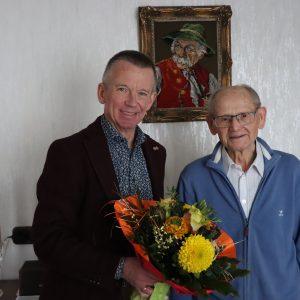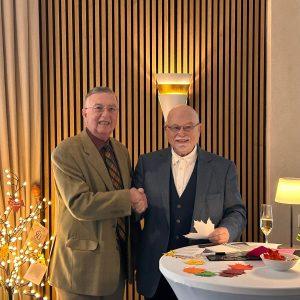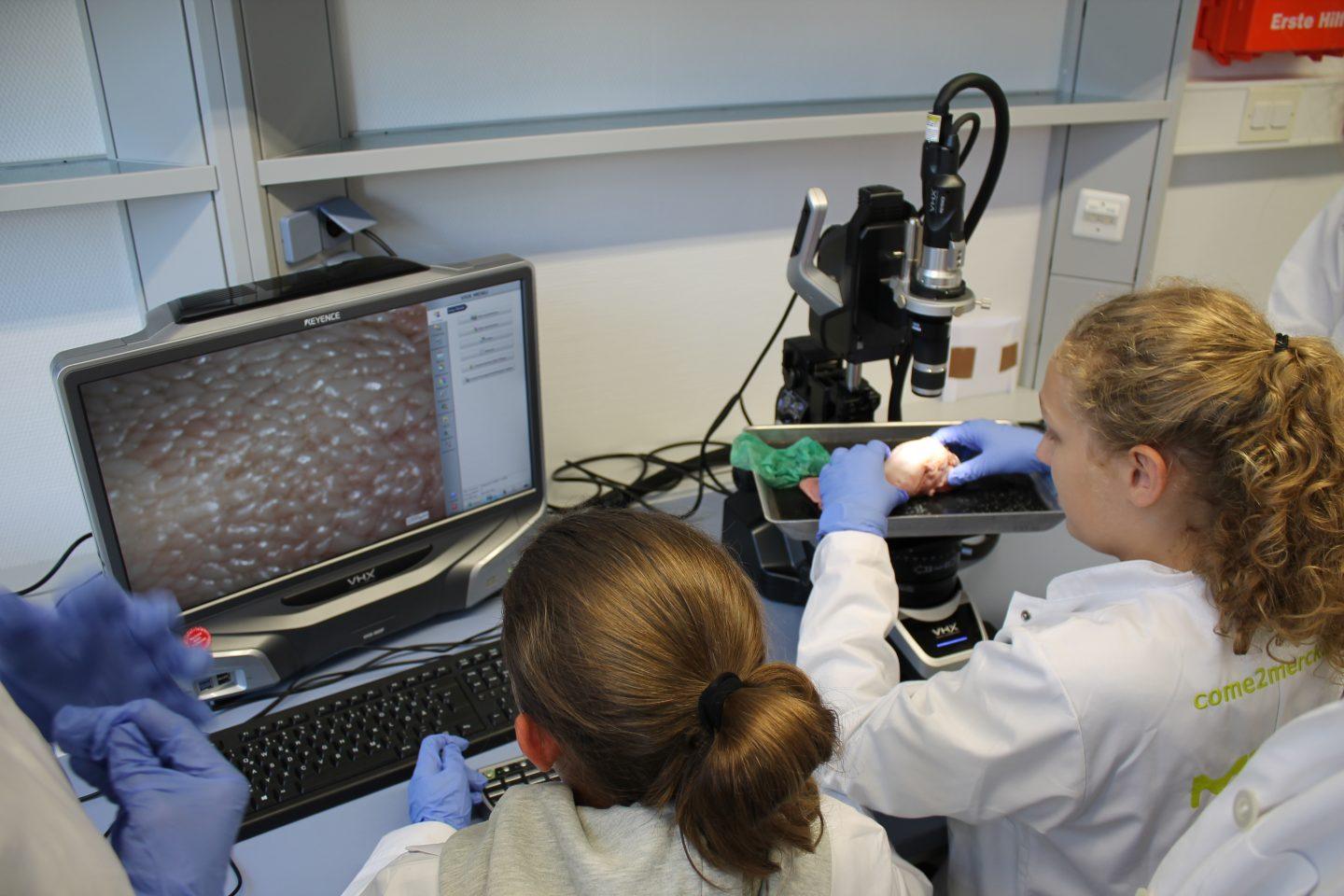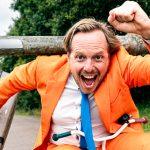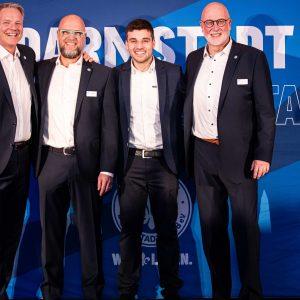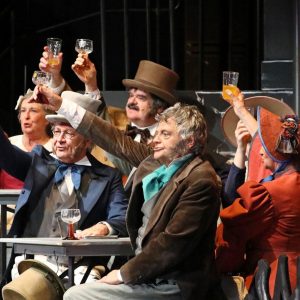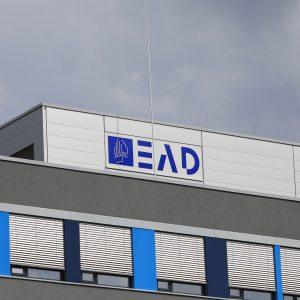Cooperation between university and companies creates practical access to science
For DA.nwes, Alexander Götz with Dr. Guido Klees (TU Darmstadt) and Dr. Thomas Eberle (Merck) .
The Merck-TU Darmstadt Biology Learning Lab at TU Darmstadt combines research, teaching, and enthusiasm. In cooperation with Merck , approximately 2,500 students discover each year how exciting molecular biology research can be. Dr. Guido Klees, head of the learning lab, and Dr. Thomas Eberle, head of MINT* programs at Merck, discuss responsibility, ethics, and the power of experimentation – and explain why research should begin in school.
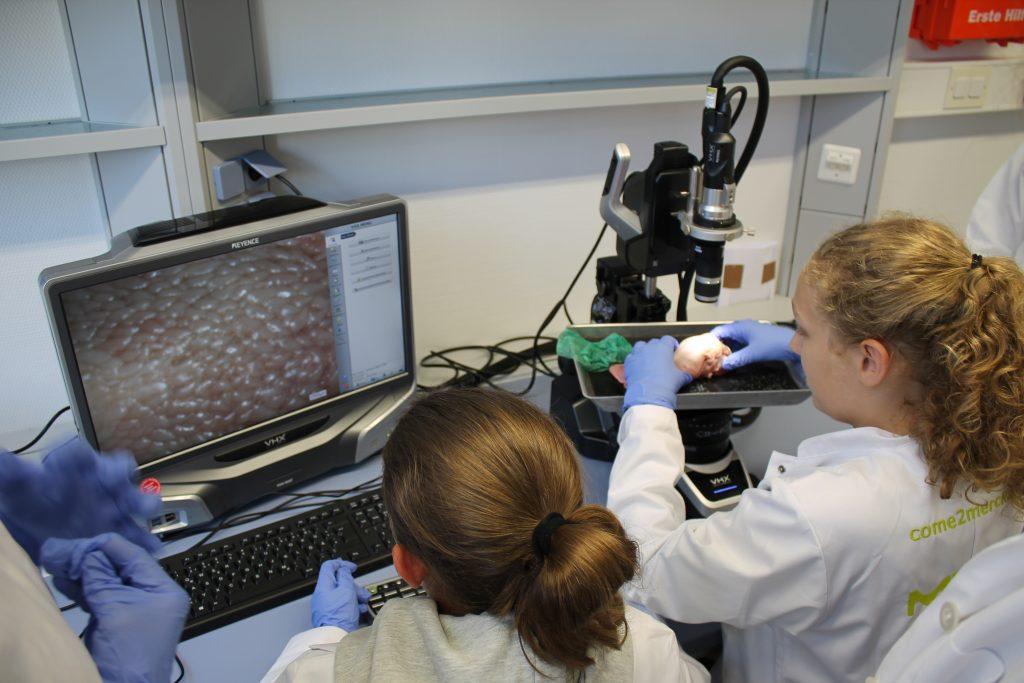
Dr. Klees, Dr. Eberle, how did the Biology Learning Lab come about?
Dr. Guido Klees:
The Biology Learning Lab was launched in 2015/2016 – inspired by the already successful Junior Chemistry Lab. The idea was to create a lab that would inspire young people with real insights into today's working methods. In May 2016, I was commissioned to set up the lab. Since then, it has gradually developed into an integral part of the educational landscape in southern Hesse. From the very beginning, we wanted more than just a classroom with microscopes. It was to be a proper research facility, with equipment comparable to the department's research labs, even allowing genetic engineering work at safety level 1.
Dr. Thomas Eberle:
For Merck, the Biology Learning Lab was a logical extension of our educational initiative. We have been working closely with TU Darmstadt for many years – in research, awards, and scholarships. At some point, the idea arose to do something together for schools. We wanted to create a place where science could be experienced hands-on – and we've succeeded brilliantly.
What is the overall goal of the learning lab?
Dr. Guido Klees:
We want to arouse curiosity and create enthusiasm—and at the same time foster scientific thinking. Students should experience how research works: from observation and hypothesis generation to experimentation, data collection, and analysis. In doing so, they learn that biology is more than theory—it is a process that constantly produces new things. And they should understand that research also entails responsibility.
Dr. Thomas Eberle:
For Merck, the project is part of our social commitment. We want to promote education, not through advertising, but as a contribution to equal opportunities. The lab day is free for schools, and all materials are provided. This means everyone can participate – regardless of financial means or the school's technical equipment. This is precisely what responsibility in action is all about.
What does a day in the lab actually look like?
Dr. Guido Klees:
The classes arrive in the morning, are welcomed, and receive a safety briefing for the lab and the theoretical foundations of the experiments. Afterward, they work in small groups in the lab. For example, they isolate DNA, conduct genetic analyses, or observe cell cultures. Sometimes they work with enzymes or conduct electrophysiological experiments. The students are highly focused but also visibly enjoying themselves. At the end of the day, they not only have results, but also a true understanding of biological relationships.
Dr. Thomas Eberle:
Many schools lack the equipment for such experiments. The learning lab closes this gap. Here, students experience that science isn't memorized, but rather experienced. This hands-on activity—pipetting, measuring, observing—teaches something no textbook can. And it's often precisely this moment that influences a later career decision.
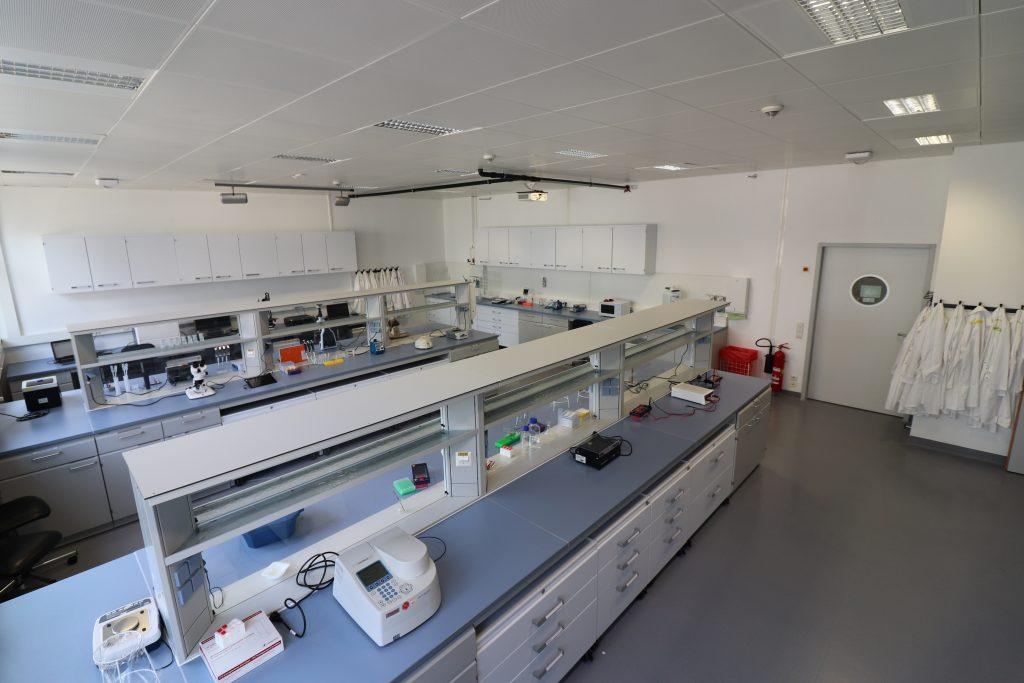
What topics are the focus of your work?
Dr. Guido Klees:
We address current topics in biological research—from cell biology and genetics to modern methods like CRISPR-Cas. This genome editing is already enshrined in the Hessian central high school diploma, so we prepare teachers and teacher trainees to teach it in depth. At the same time, we integrate aspects of ethics and sustainability. So, it's not just about technology, but also about responsibility.
Dr. Thomas Eberle:
This is very important to us. Biological research always raises societal questions: Are we allowed to do everything we can? What are the consequences of innovations? Such discussions are part of education today. We want young people to understand that research is not a black box, but a human, reflective process.
Sustainability also plays a central role in the biology lab. How do you implement this in practice?
Dr. Guido Klees:
Firstly, from a practical perspective: We pay attention to the economical use of materials, avoid single-use products wherever possible, and reuse resources. Secondly, from a content perspective: Many experiments relate to sustainability and demonstrate ecological and biotechnological possibilities. This puts us right at the interface between basic research and application.
Dr. Thomas Eberle:
At Merck, we pursue the same approach. Sustainability is no longer an additional topic, but rather part of our innovation strategy. When young people see in the lab that science can help conserve resources or prevent emissions, they understand that biology or chemistry can be part of the solution. This is a shift in perspective that we want to support.
What role do teachers play in this concept?
Dr. Guido Klees:
A crucial one. The learning lab rests on three pillars: student lab, teaching-learning lab, and teacher training. Student teachers develop their own teaching formats and test them practically with students in the lab. At the same time, we regularly offer training for current teachers. Thus, the lab is not just a place for learning, but also a place for exchange and professional development.
Dr. Thomas Eberle:
This is precisely where the added value lies. We need teachers who can confidently handle modern scientific topics – from genetic engineering to sustainability. Here, they receive the professional and didactic tools to do so. And when they then pass this on to their students, the effect is multiplied.
How interested are schools?
Dr. Guido Klees:
Very large. We hold around 120 to 140 events annually with approximately 2,500 participants. Appointments are usually fully booked within a few hours. Many classes return every year, some teachers even bring new groups because they see how lasting the learning effect is. And for the students who work here as tutors, it's a valuable experience on their path to becoming teachers.
Dr. Thomas Eberle:
This shows how established the learning lab has become. It has developed into a permanent institution, valued by schools, universities, and businesses alike. This continuity is the best thing that can happen to an educational project.
What do you personally enjoy about this work?
Dr. Guido Klees:
I'm thrilled when initial hesitancy turns into genuine curiosity. When students suddenly say, "Now I understand how it works!" – then I know why we do it. Biology explains life itself, and when young people grasp that, it's a pivotal moment.
Dr. Thomas Eberle:
I'm impressed by the enthusiasm that's generated here. Young people are much more open-minded than you might think. When you give them the opportunity to conduct their own research, they take responsibility, ask questions, and want to know how things are connected. Science thrives on wonder—and that's exactly what happens here every day.
Dr. Guido Klees:
And this enthusiasm often remains. We often hear from former students who later go on to study biology or medicine – and they say that the learning lab was the catalyst. Feedback like this is the greatest compliment.
Liveable Darmstadt
powered by MerckMerck is actively committed to creating a region worth living in. Together with its partners, the company creates an environment in which scientific education, sports, and the arts can thrive. Through its commitment to social institutions and charitable projects, Merck contributes to a better sense of community in Darmstadt.
The collaboration between Merck and the Technical University of Darmstadt plays a central role in science education. Together, they operate student laboratories in biology and chemistry. Furthermore, Merck supports STEM* activities at schools in the region and sponsors numerous competitions for young STEM talents, including "Jugend forscht," the "International Chemistry Olympiad," and the "Day of Mathematics." Every year, Merck honors talented students from Darmstadt and the surrounding area with the Merck Abitur Prize and offers training for teachers.
*The now established acronym MINT stands for the fields of mathematics, computer science, natural sciences and technology

